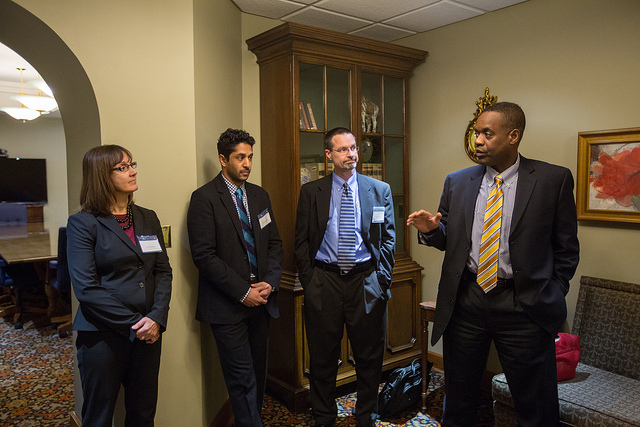The ballots have been cast and the votes have been counted. And although Detroit officials are remaining silent on the results of the all-important pension-cutting ballot measure, a few leaks have made their way to media outlets. The consensus: the measure has enough “yes” votes to pass, according to the Detroit Free Press:
Detroit pensioners appear to have voted in favor of allowing the city to cut their monthly checks as part of the grand bargain to help resolve the city’s Chapter 9 bankruptcy, several sources familiar with the voting results told the Free Press.
Police and fire pensioners appeared to have accepted the deal by a wide margin, and while the vote was closer with civilian retirees, only an unexpected last-minute surge of “no” votes would derail the plan, according to people familiar with the voting results.
The city’s pensioners had until 5 PM last Friday to vote on the proposed measure to cut their pensions by 4.5 percent and eliminate future COLA increases. Those cuts are hard to stomach for some, but Detroit maintains that a “yes” vote would stave off even deeper cuts. The implications of a “yes” vote, according to the Detroit Free Press:
If the two separate classes of pensioners [public safety workers and civilian pensioners] vote yes, the City of Detroit would accept $195 million in upfront cash from the State of Michigan and $466 million in 20-year pledges from nonprofit foundations and the Detroit Institute of Arts to help reduce pension cuts and allow the museum to spin off. The deal for pensioners and the DIA has come to be known as the grand bargain.
If voters reject the measure, those cash infusions from the state and nonprofits fall through. That means that even deeper cuts in pension benefits will likely be necessary. Detroit Emergency Manager Kevyn Orr had originally proposed cutting pension benefits by up to 34 percent.
But it doesn’t look like that will be the case. From Freep:
Sources familiar with the vote said that although ballots mailed at the last minute have not yet been tabulated, a high percentage of public safety pensioners — classified under the Police and Fire Retirement System class — voted yes to accept a reduction in annual pension inflation adjustments from 2.25% to 1%.
It’s closer among civilian pensioners — classified under the General Retirement System class — the sources said.
Two people familiar with the situation said that with last-minute votes yet to be counted, more than 70% of GRS [General Retirement System] voters had voted yes.
The plot thickens just a bit here, because a simple majority isn’t enough to pass this measure. There are two classes of voters: public safety workers and civilian workers. Both classes must have a majority of “yes” votes. And the “yes” votes from each class must represent at least two-thirds of the dollar value of the debt owed to them.
The results of the vote don’t have to be publicly revealed until July 21. But even then, the measure can’t yet go into law. It needs to be first approved by a bankruptcy judge.
